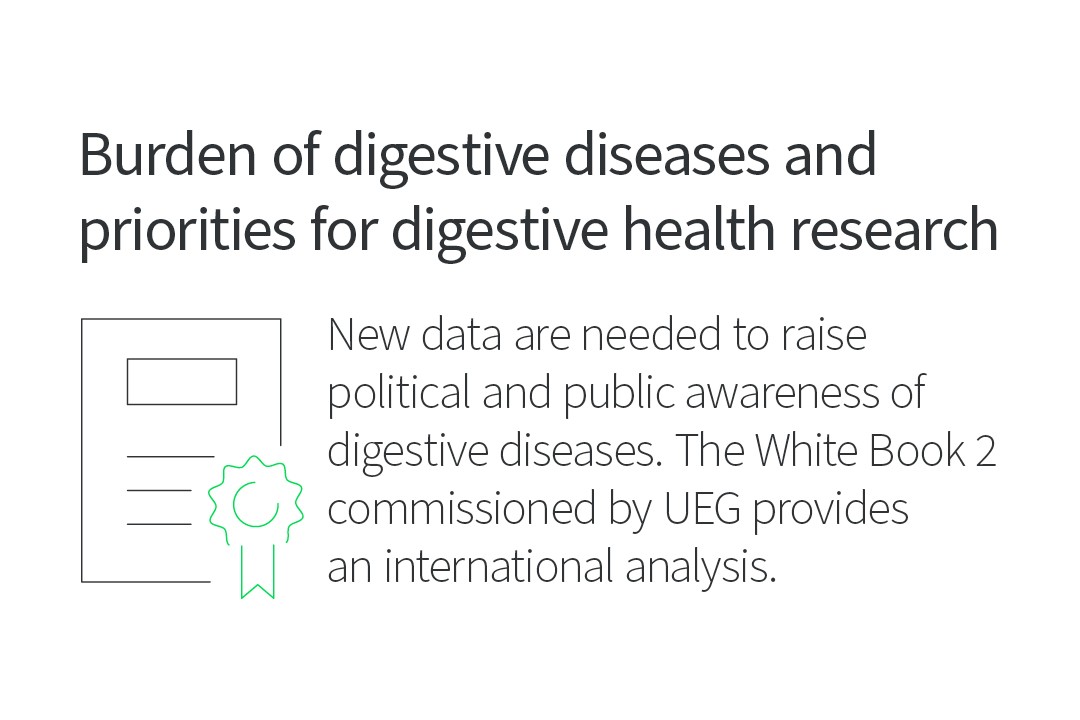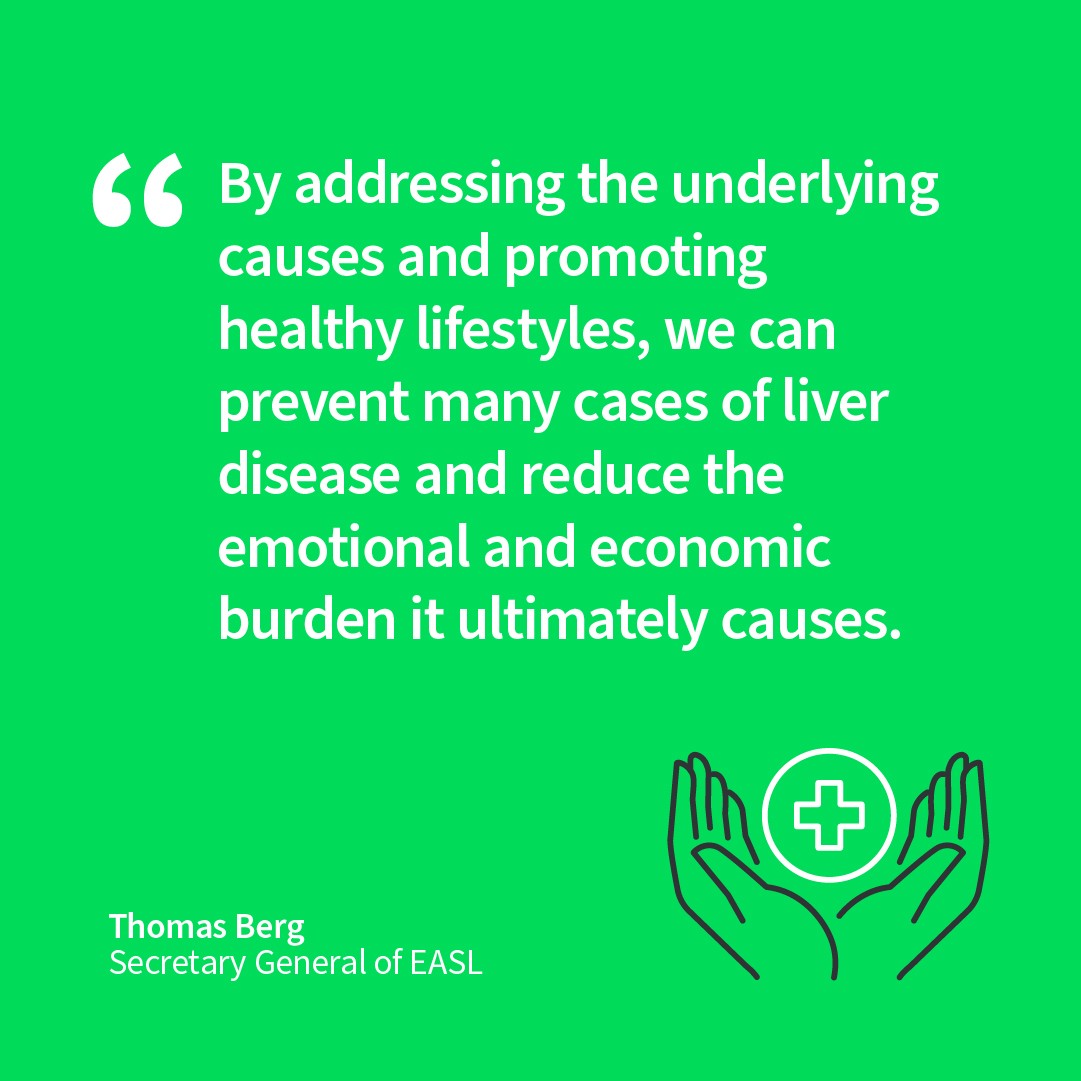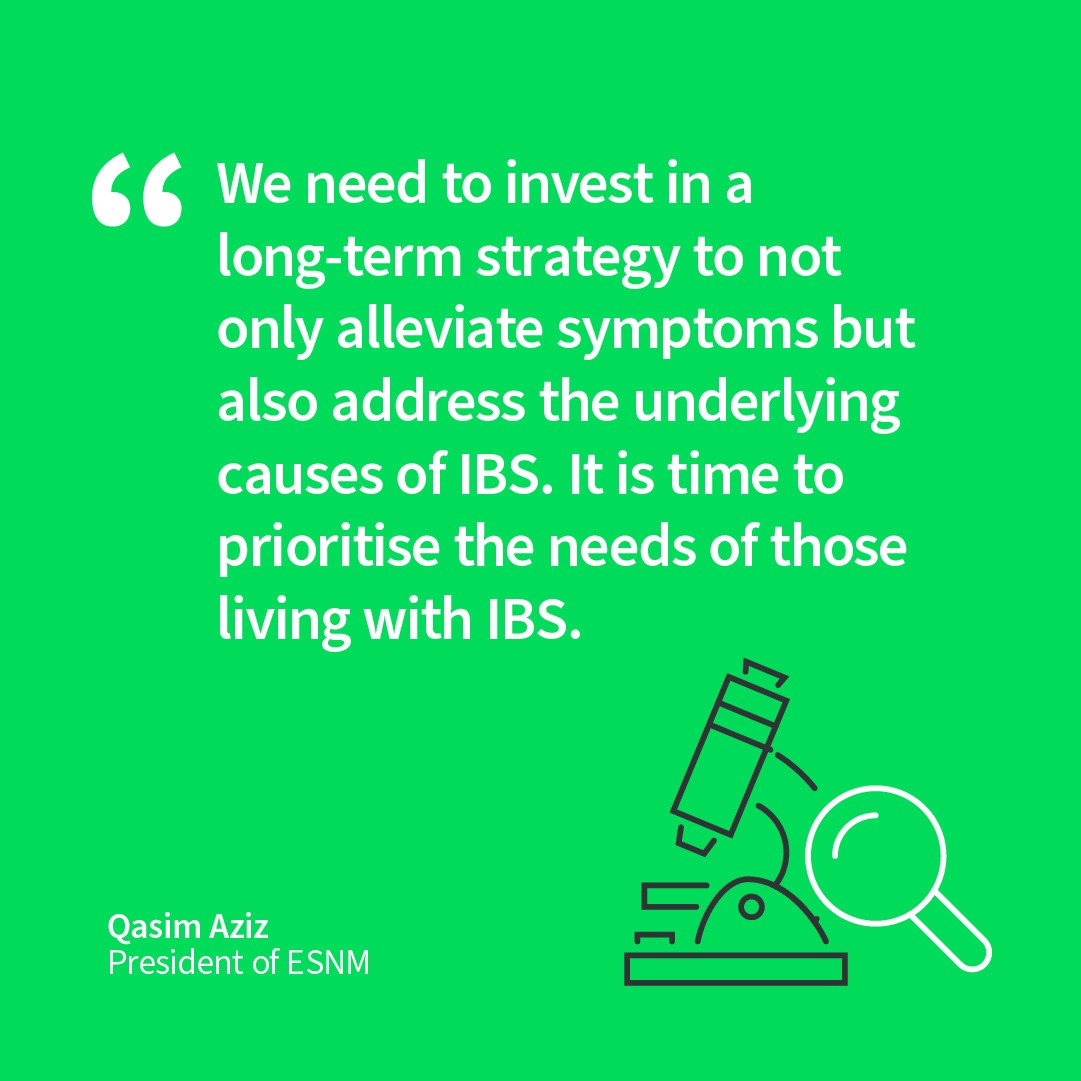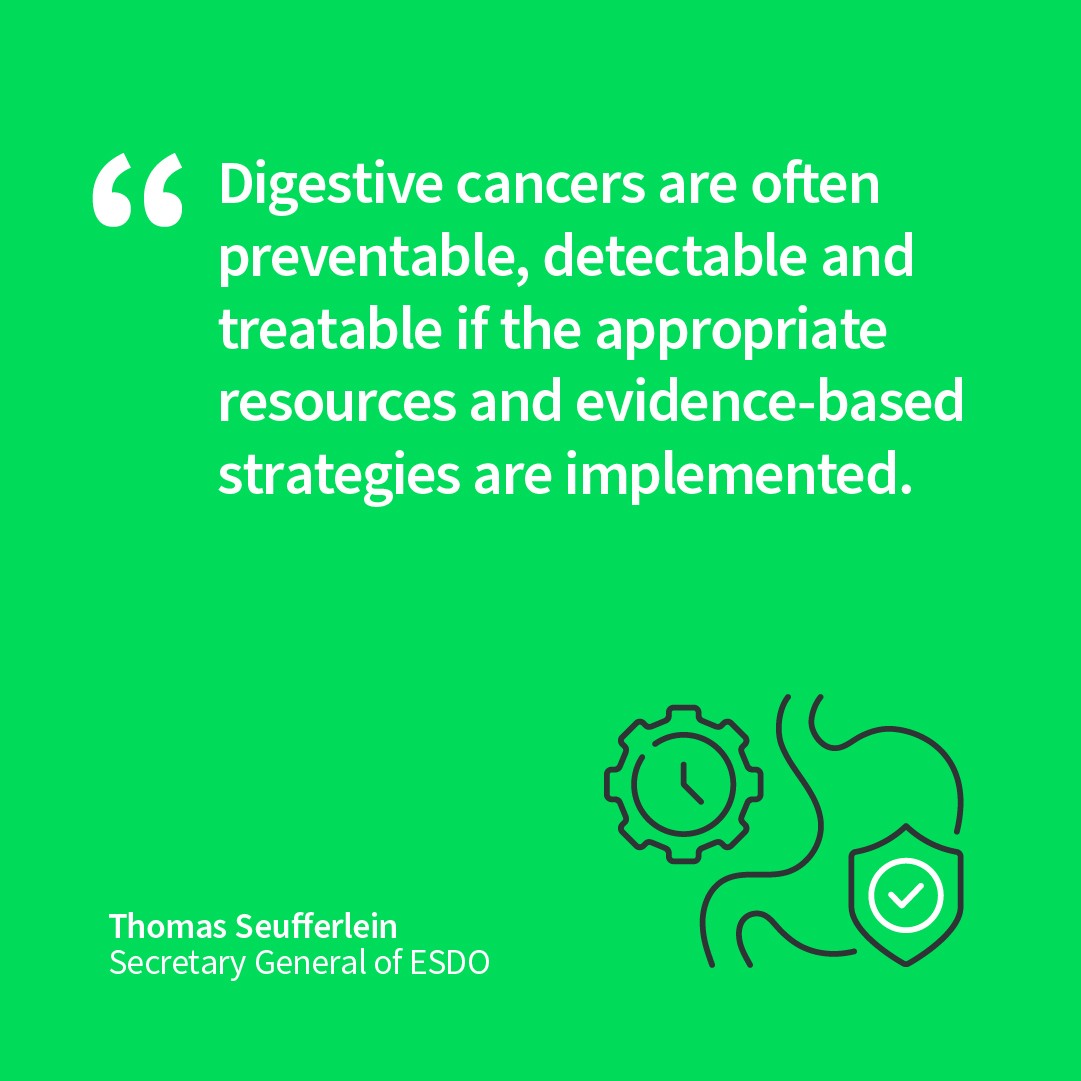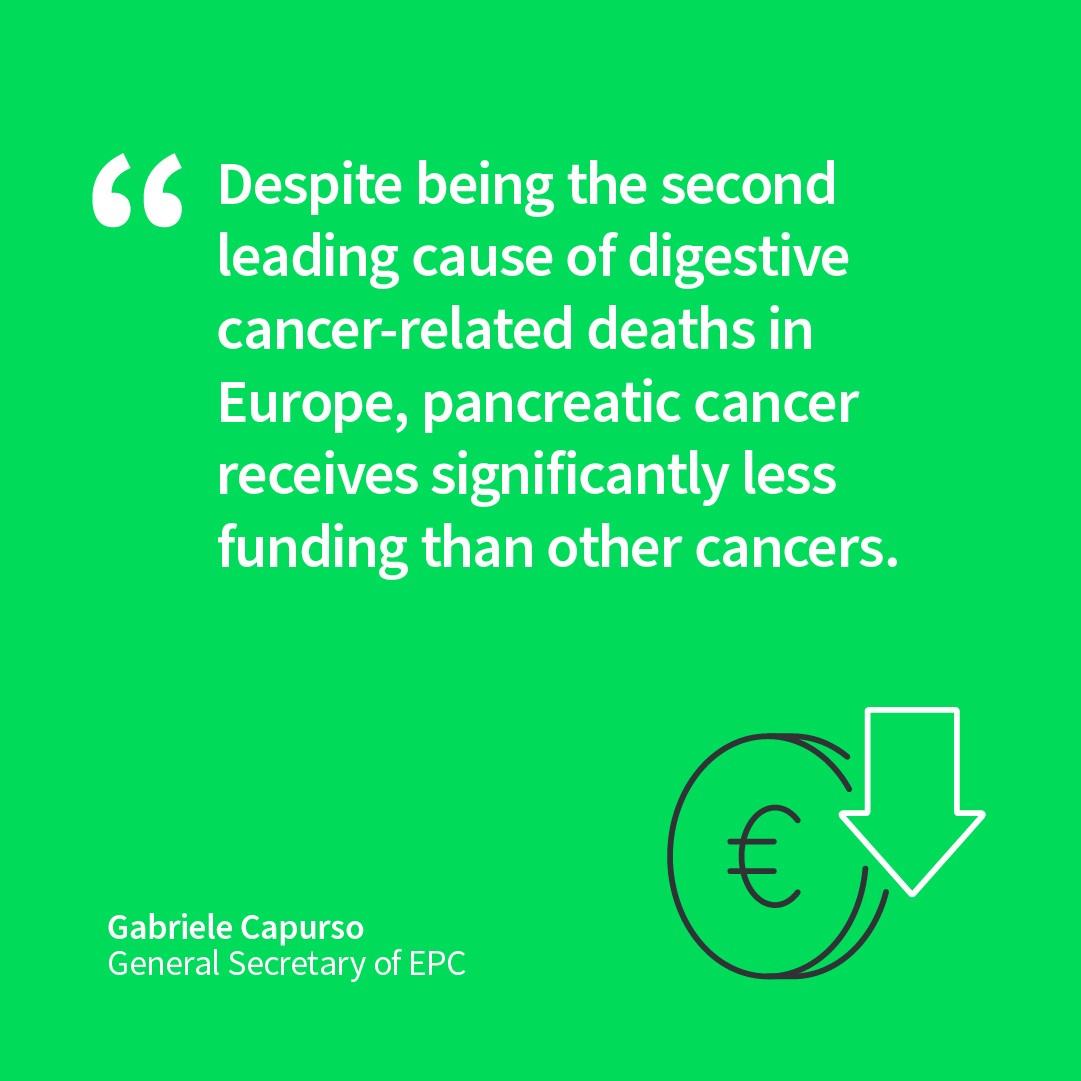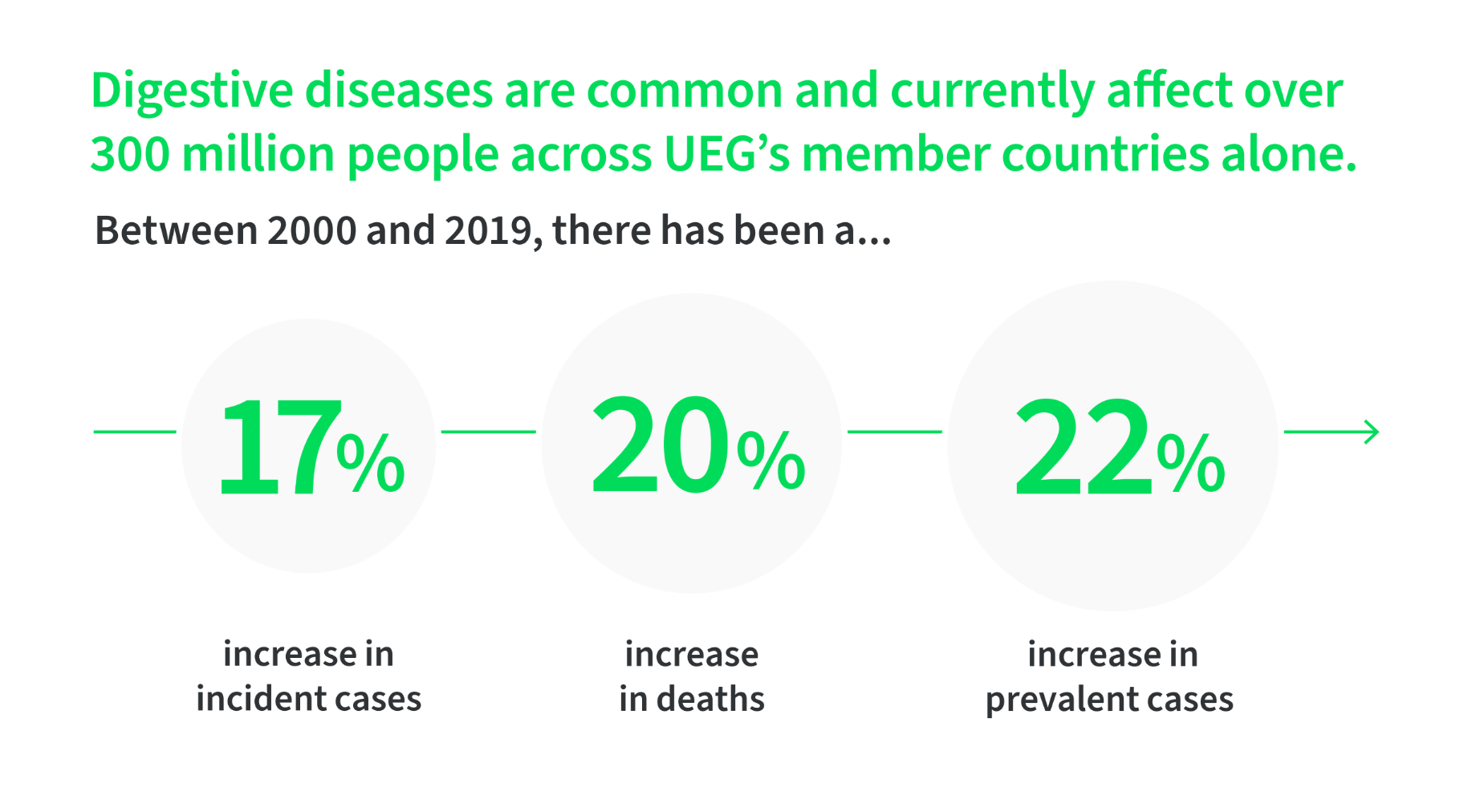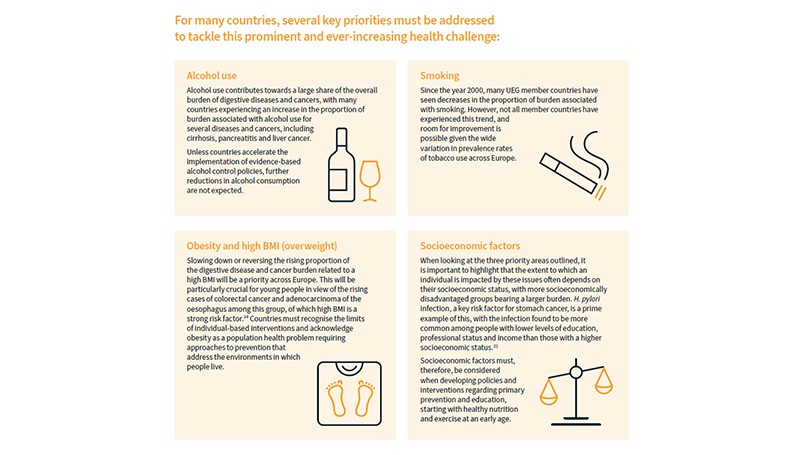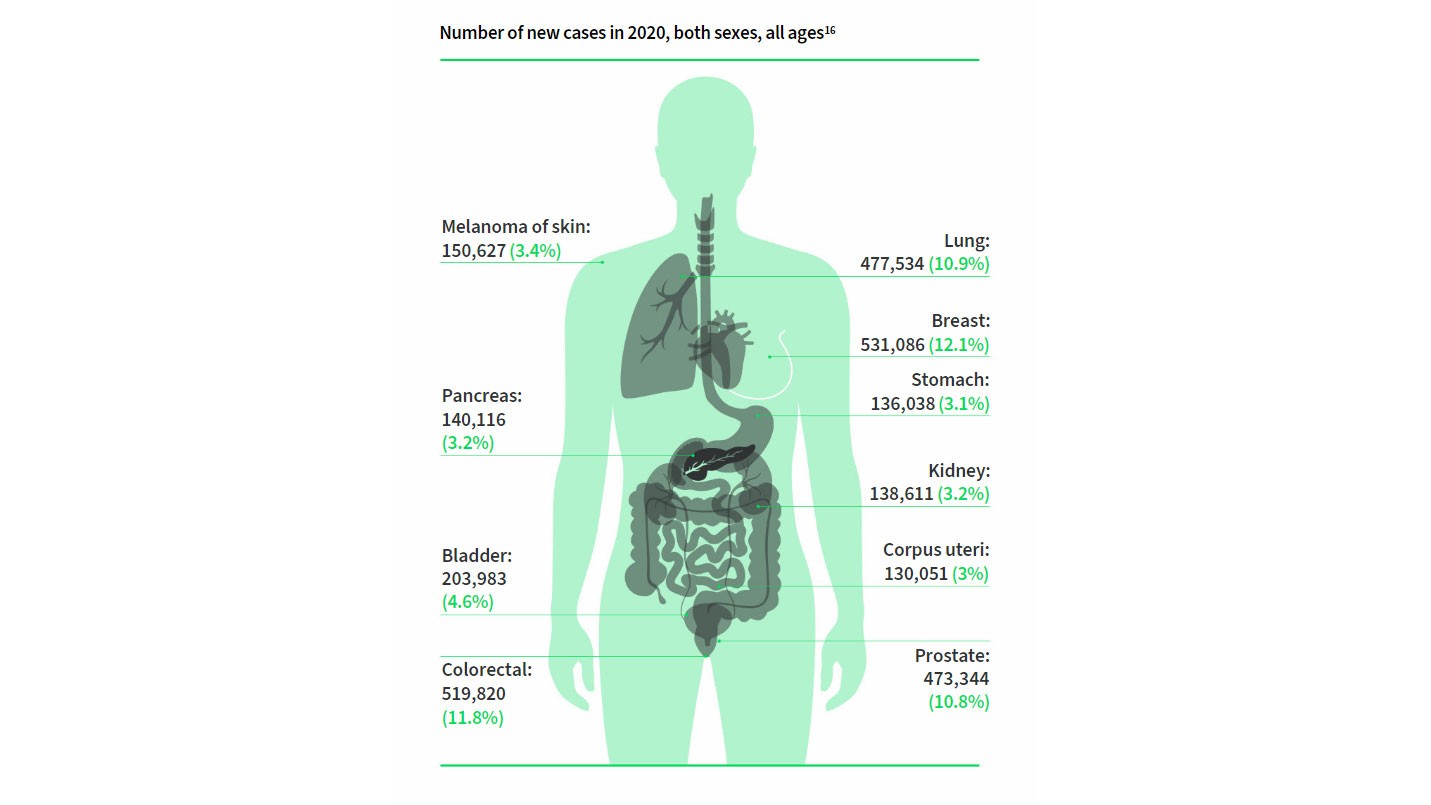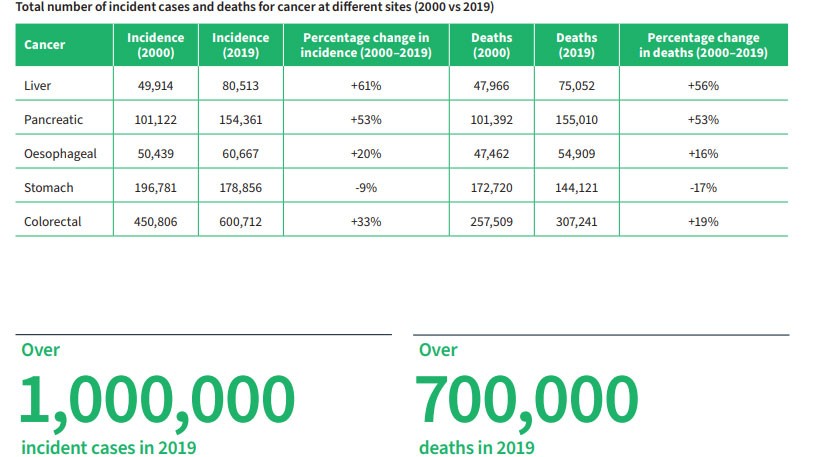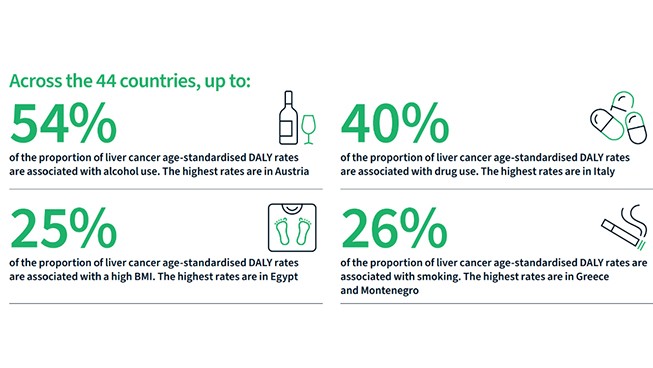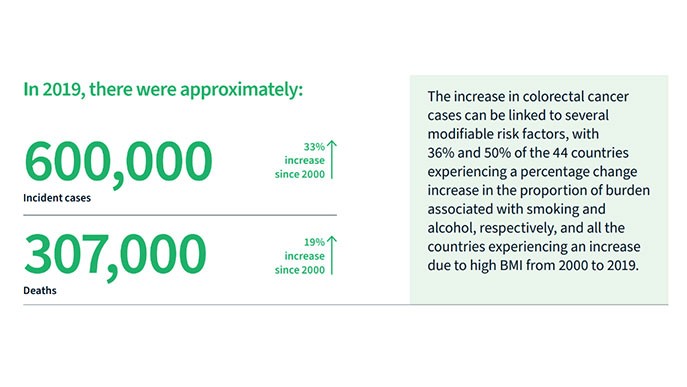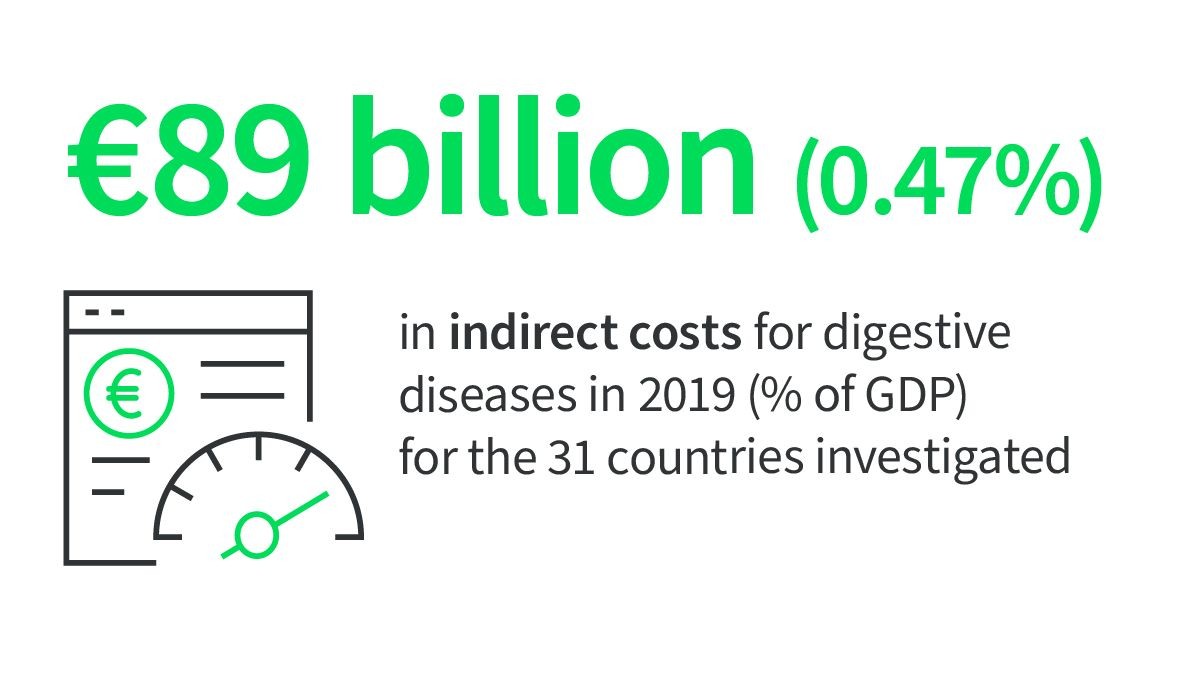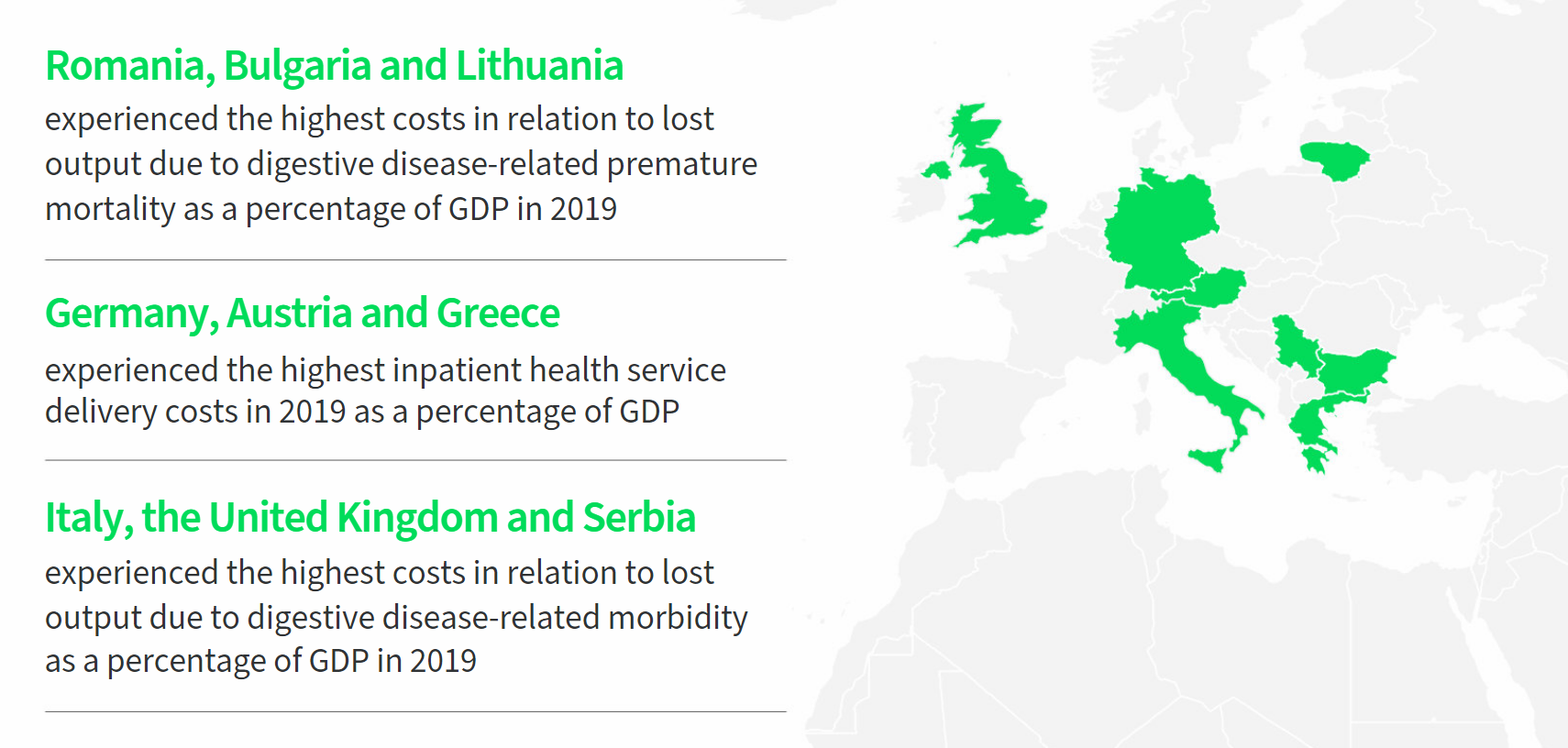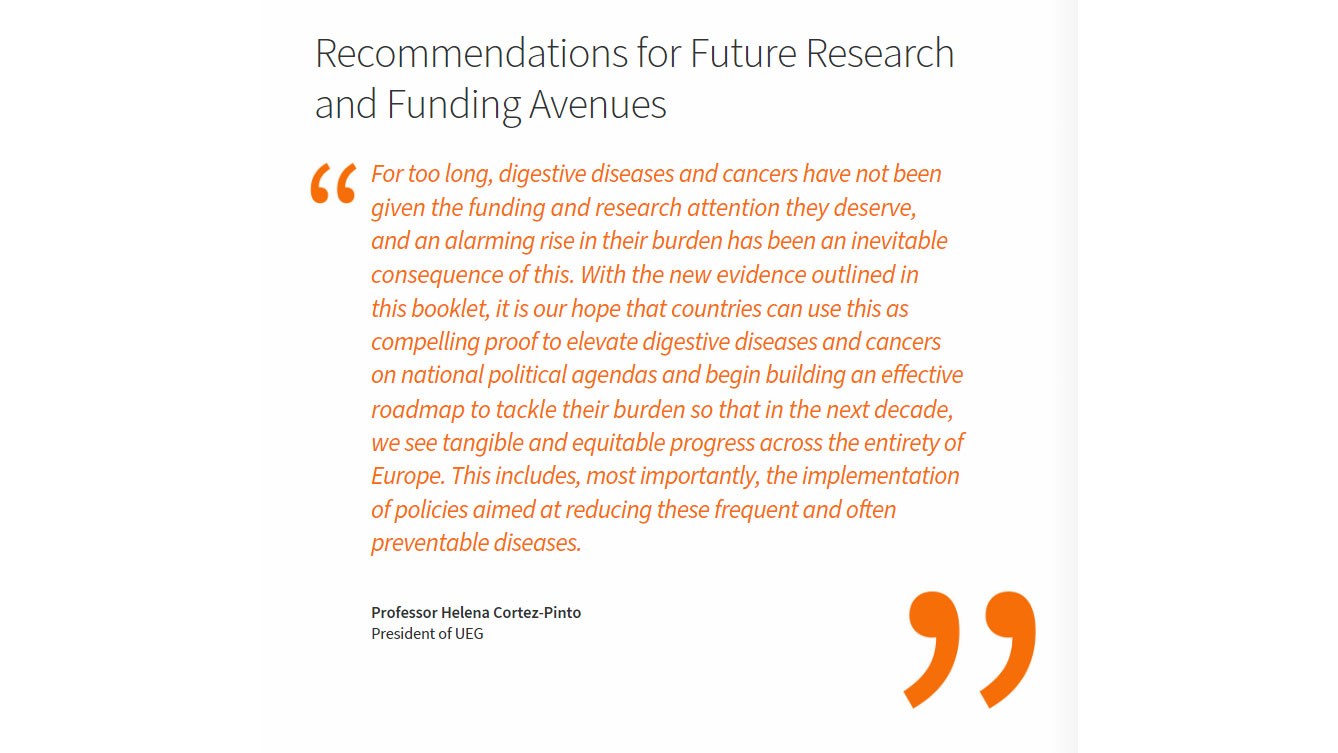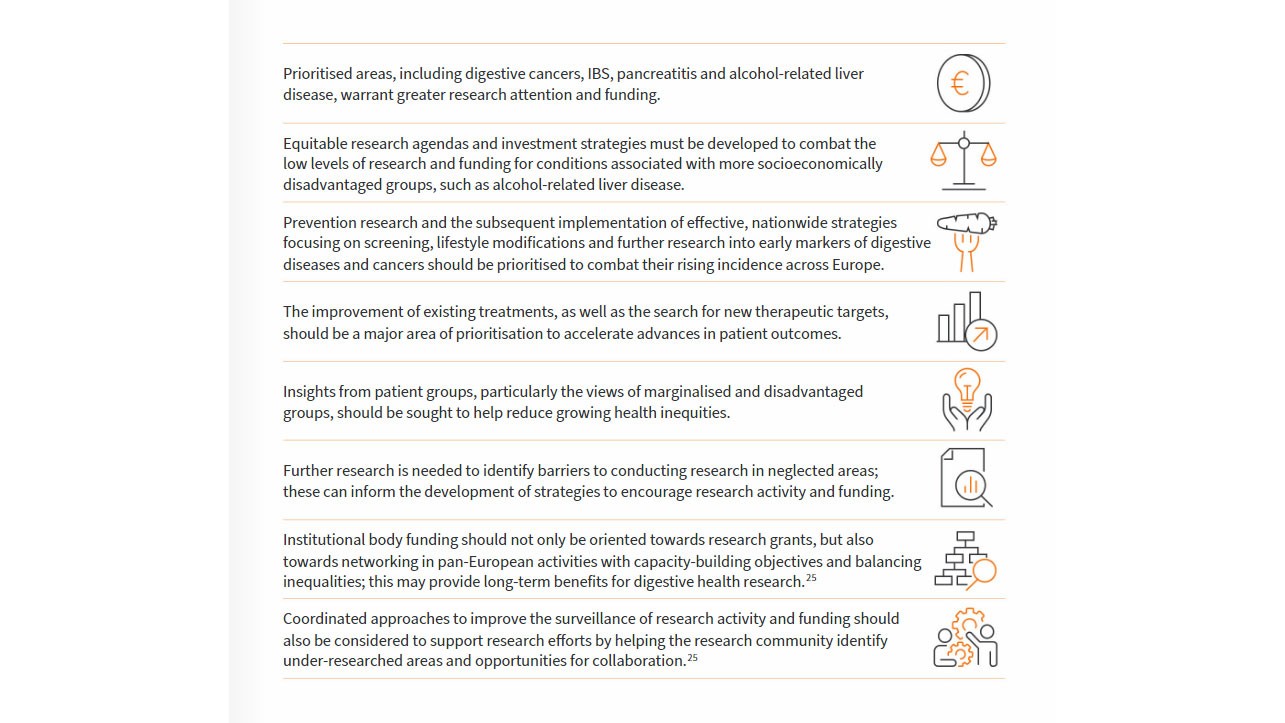On May 29th each year we celebrate World Digestive Health Day!
This event is held in support of an annual tradition initiated by the World Gastroenterology Organisation. Each year the campaign focuses on a particular digestive health-related topic, aiming to help spread awareness of digestive health.
Interested in learning more?
To highlight this year’s official theme “Your Digestive Health: A Healthy Gut From the Start”, we published an article by Raanan Shamir (UEG Research Committee Member and ESPGHAN Representative) on the importance of early preventative measures to ensure a healthy digestive system.
Following this year’s launch of our latest publication, the key findings from the White Book 2 study, we dedicated the entire month of May to a public awareness campaign that deep-dived into digestive diseases and cancers across Europe, with a particular focus on the burden, economic impact and research gaps.
Key messages
Overview
The awareness raising campaign running in May will touch upon four major themes:
The burden of digestive diseases - The burden of digestive cancers - The cost of inaction - Funding and research opportunities
The burden of digestive diseases
Digestive diseases exert a substantial public health and economic burden across Europe. In 2019 alone, there were approximately 498,000 deaths and 332,000,000 prevalent cases of digestive diseases. This upward trend in the number of cases is concerning as several digestive diseases are associated with an increased risk of digestive cancers.
Whilst the contribution of risk factors will vary considerably by disease and country, a high body mass index (BMI) and alcohol consumption are major contributors to the digestive disease burden and the observed increases in cases. In addition, socioeconomically disadvantaged groups are disproportionately affected by these increases.
The burden of digestive cancers
The most common digestive cancers, which include primary liver, pancreatic, oesophageal, stomach (gastric) and colorectal, exert a considerable health and societal burden. Being the leading cause of cancer death in Europe, digestive cancers are responsible for over a third of all cancer-related deaths. In 2020, of the top ten cancers with the newest cases across Europe, three were digestive cancers.
In 2019, there were approximately 81,000 incident cases of liver cancer in Europe, which corresponds to a worrying 61% increase since 2000. Typically, incidence rates increase with age, with age-specific incidence rates being higher for men across all age groups. As for other digestive cancers, alcohol use is one of the main risk factors.
Colorectal cancer accounts for the largest proportion of deaths due to digestive cancers amongst both men and women, as well as the highest number of years of healthy life lost due to disability, demonstrating its significant burden. Colorectal cancer screening is an effective means to efficiently reduce mortality rates, yet there are still wide disparities in access to screening across Europe.
Discover more striking new data on other digestive cancers:
The economic burden of digestive diseases: The cost of inaction
Across Europe, the economic burden associated with digestive diseases is substantial, with significant costs arising from both within and outside the health system. With a lack of studies currently available regarding the economic burden of digestive diseases, research into this area is urgently required.
The concrete economic benefits of reducing the burden of digestive diseases becomes evident when looking at the following numbers from our latest study: If, across the 31 countries studied in the White Book 2, digestive disease-related premature mortality rates were reduced by 25%, 50% or 75% in 2019, the estimated savings from the prevention of productivity losses would have amounted to a total of €11.4, €22.8 and €34.2 billion, respectively.
Time for action: Funding and research opportunities
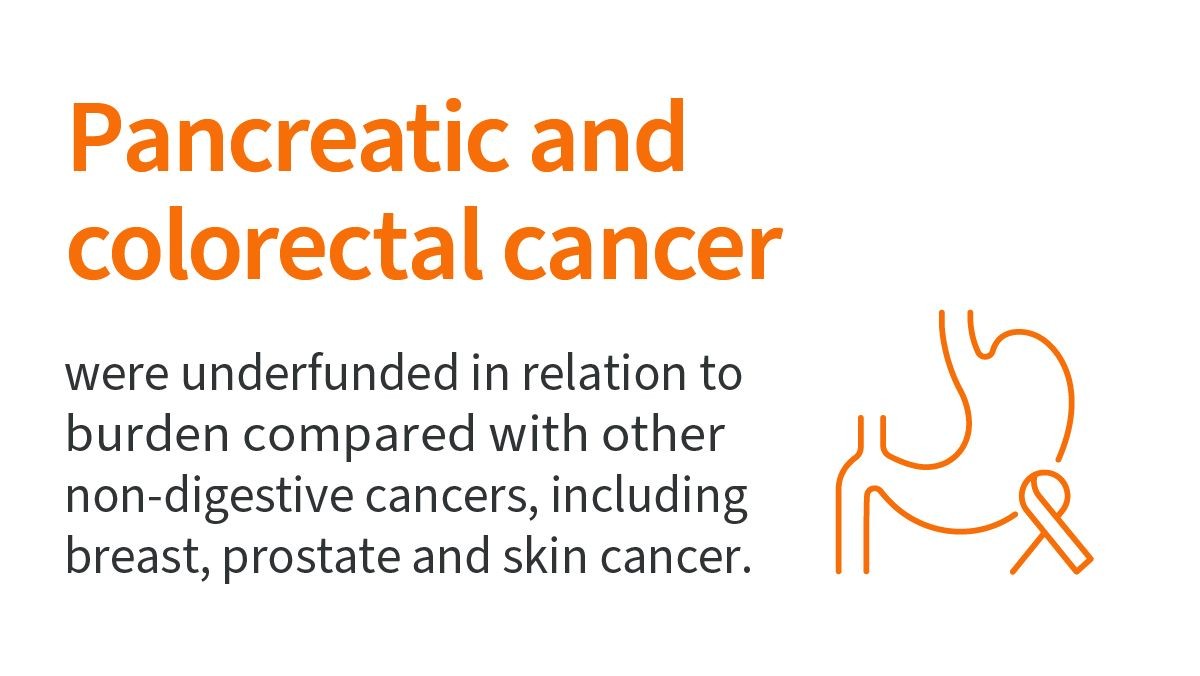
Digestive diseases and cancers exert a substantial public health and economic burden across Europe. Unfortunately, despite their significant and increasing burden, they remain poorly understood, attracting relatively little attention in terms of policy, funding and research.
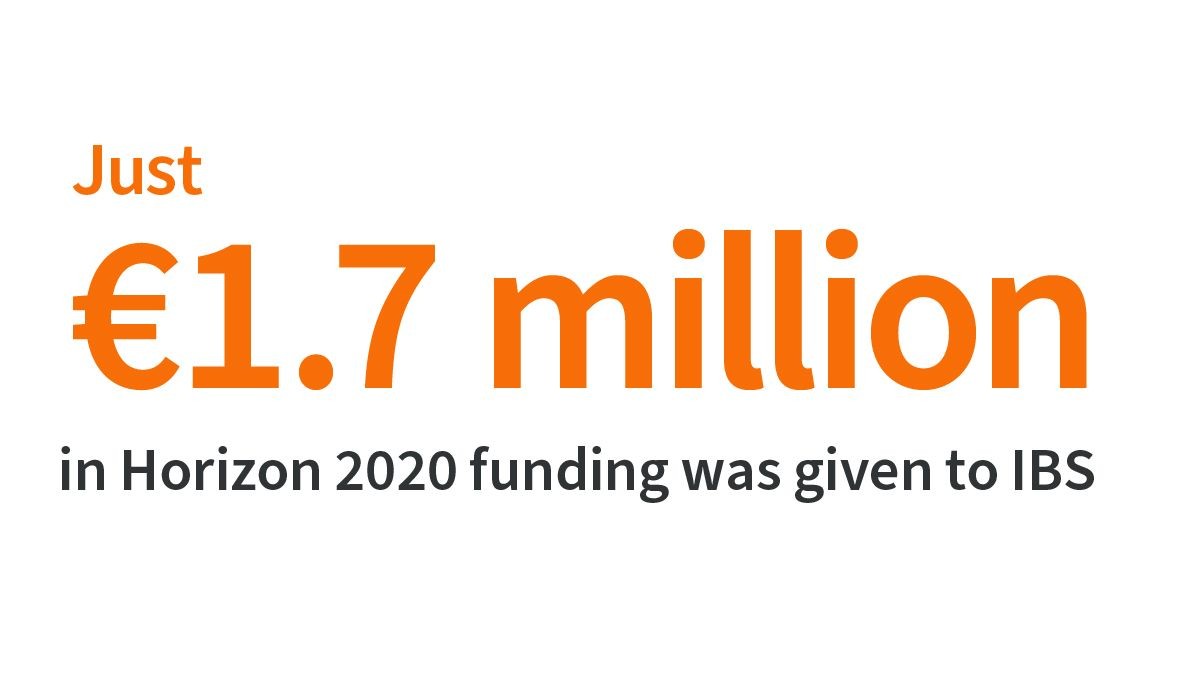
Some key observations revealed by our newest study:
- Digestive diseases and cancers are underfunded compared with some non-digestive diseases.
- A large proportion of digestive diseases, including IBS, gastroesophageal reflux disease, eosinophilic oesophagitis and coeliac disease, which are on the rise, received limited, if any, research funding in the form of Horizon 2020 grants.
- Alcohol-related liver disease is both underfunded and under-researched in relation to the high level of burden associated with this disease.
Moreover, our study has clearly shown that a lack of information exists regarding the financial burden of digestive diseases and cancers. The overall lack of progress over the last two decades in reducing the incidence of digestive diseases and cancers points to the urgent need for greater adoption of preventative strategies.
Read our Open Letter with policy recommendations to improve digestive health in Europe addressed to National and EU Representatives:
Curious about our social media campaign?
Search for #DigestiveHealthMonth on Twitter to find related content and benefit from the discussions!
Have questions? Contact us at .
Digestive Health Month 2022
In 2022, the theme of World Digestive Health Day was Colorectal Cancer. To mark the occasion and maximize the impact of Digestive Health Month, we dedicated the 2022 campaign to the importance of primary prevention and screening. See here some highlights:
Key messages
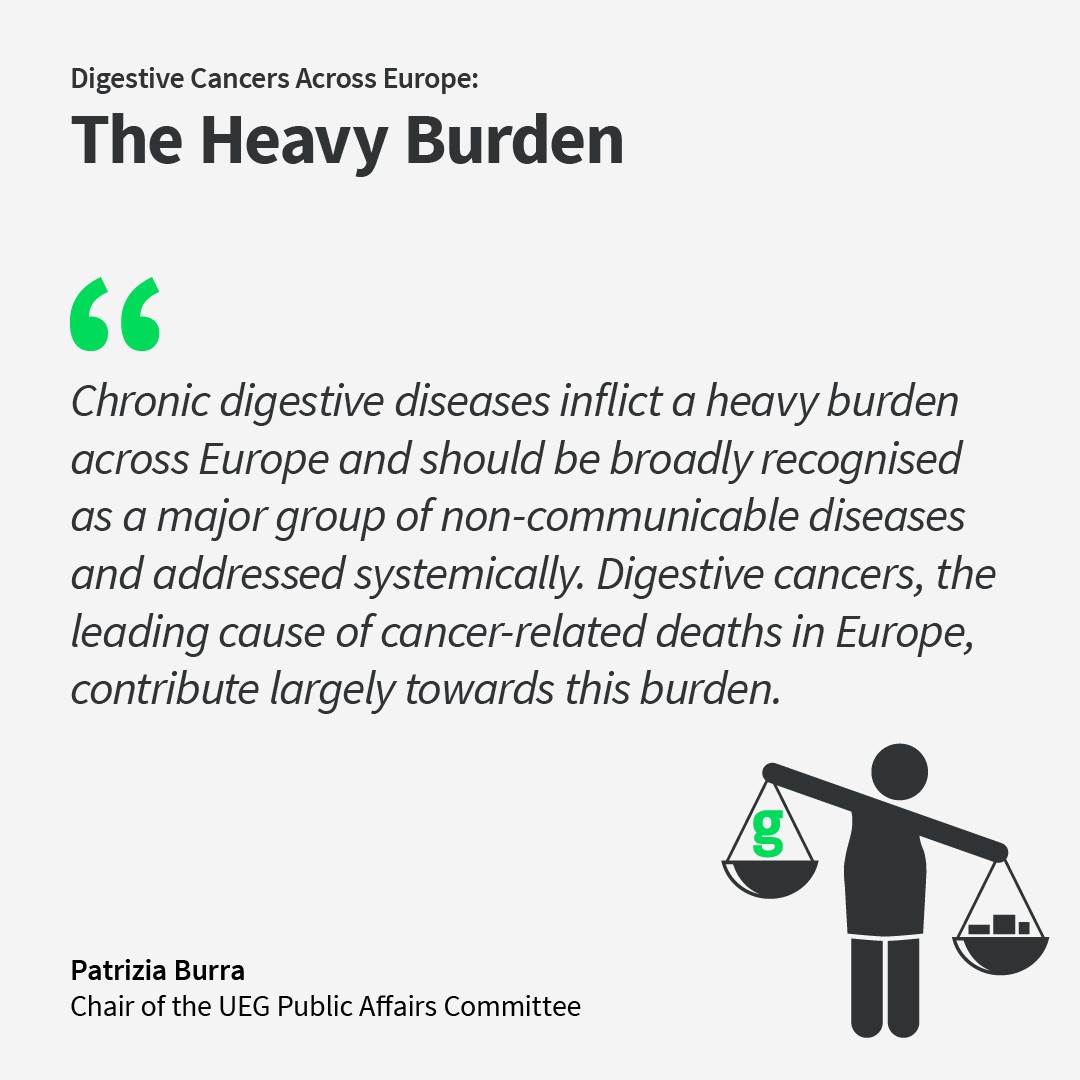
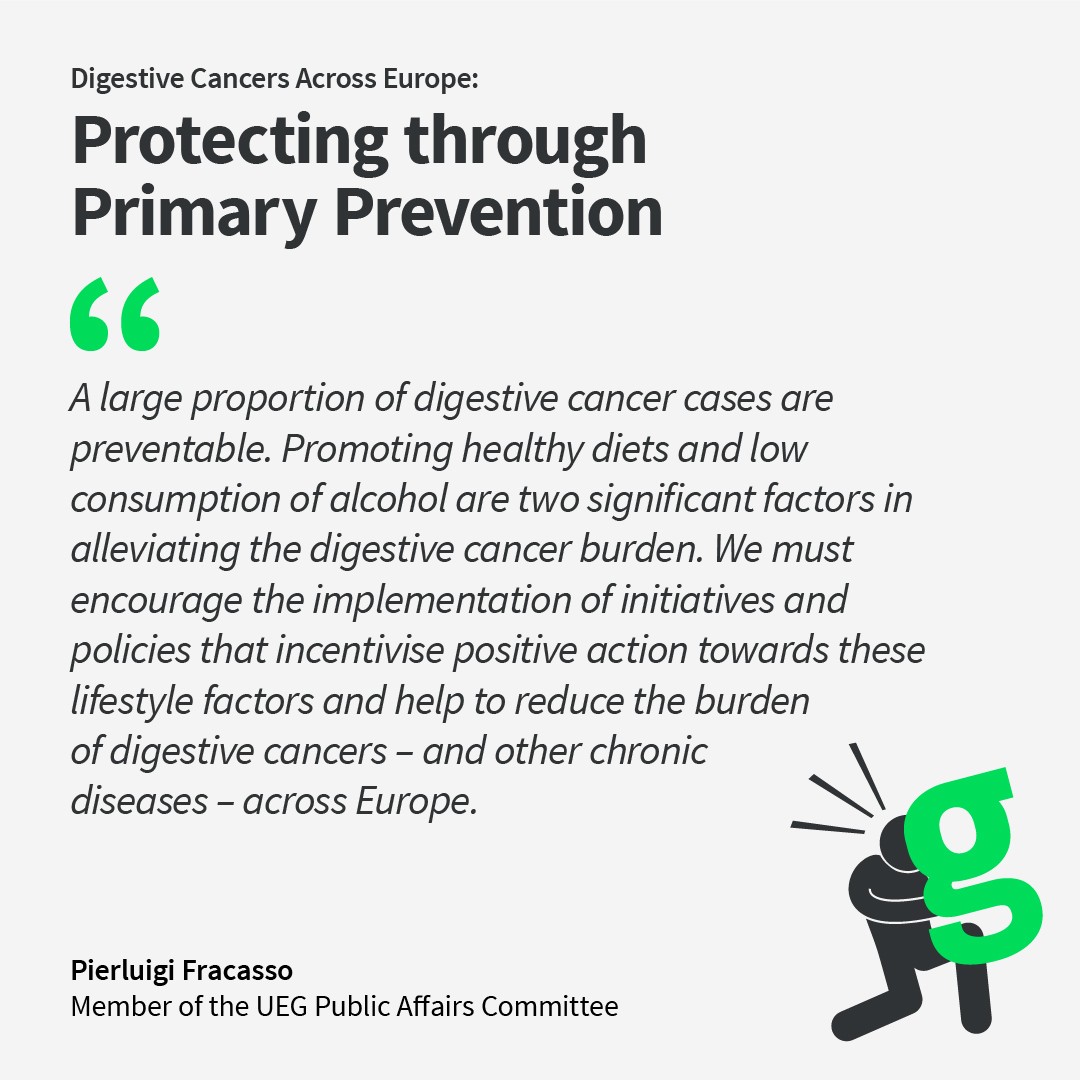
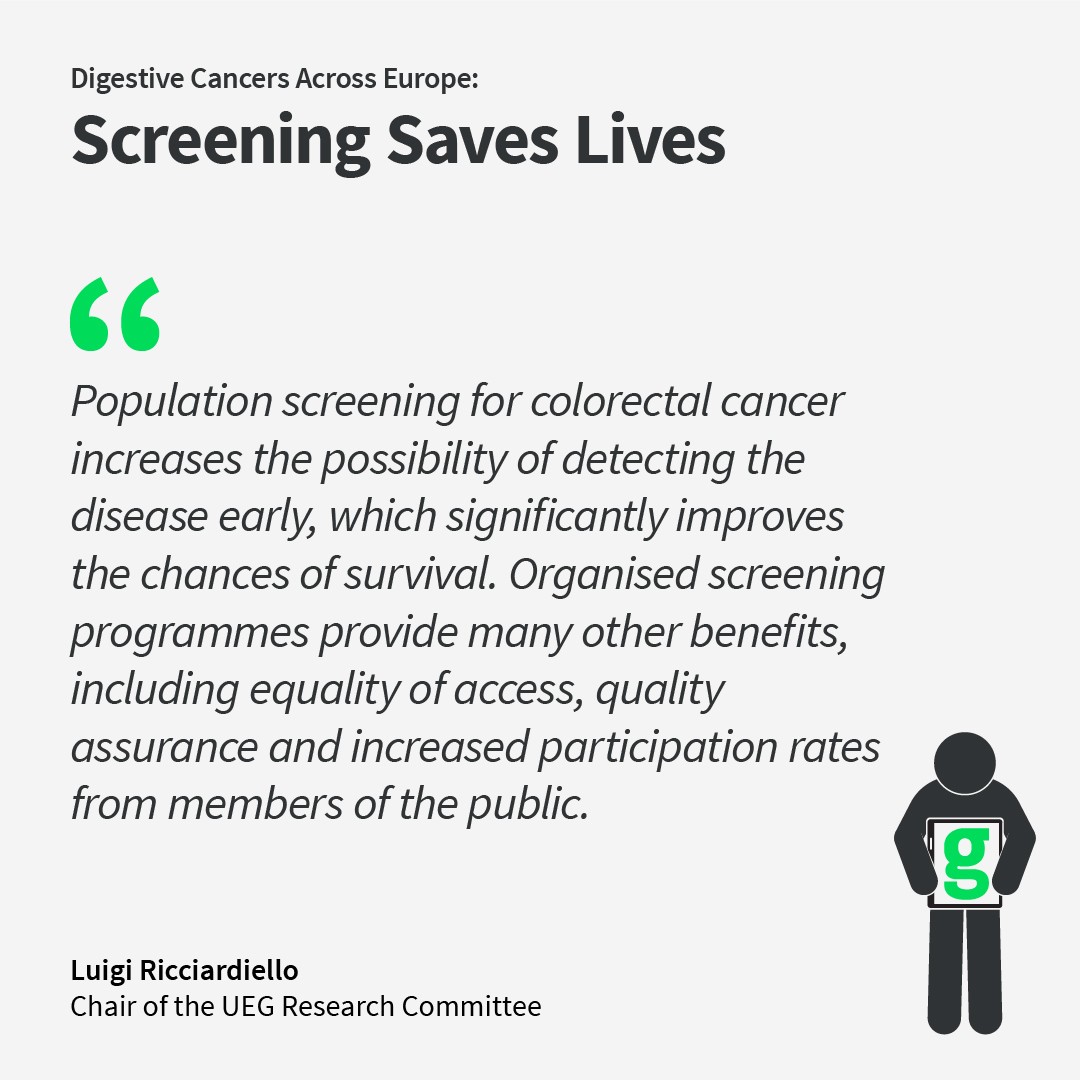
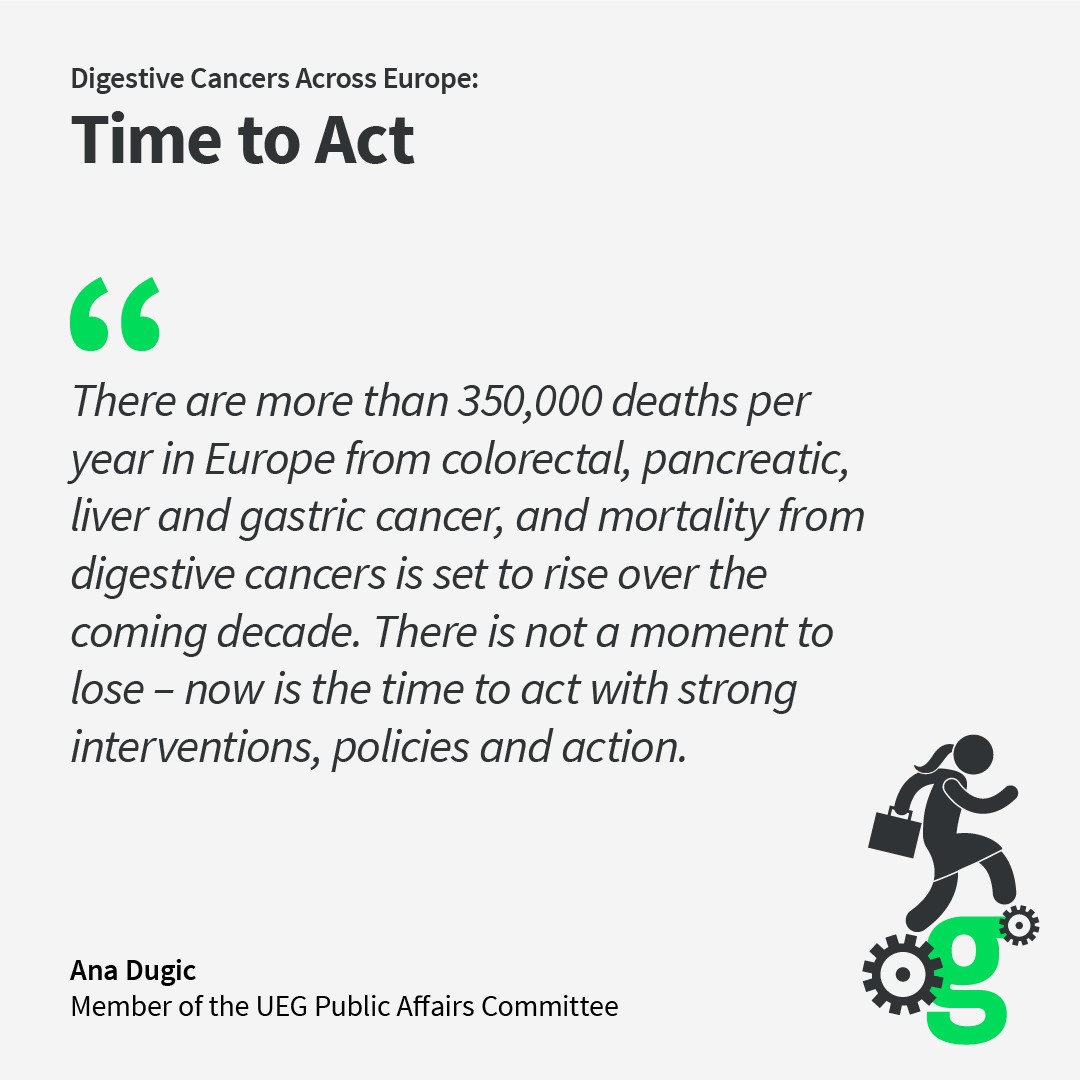
Digestive cancers across Europe: Primary prevention and screening
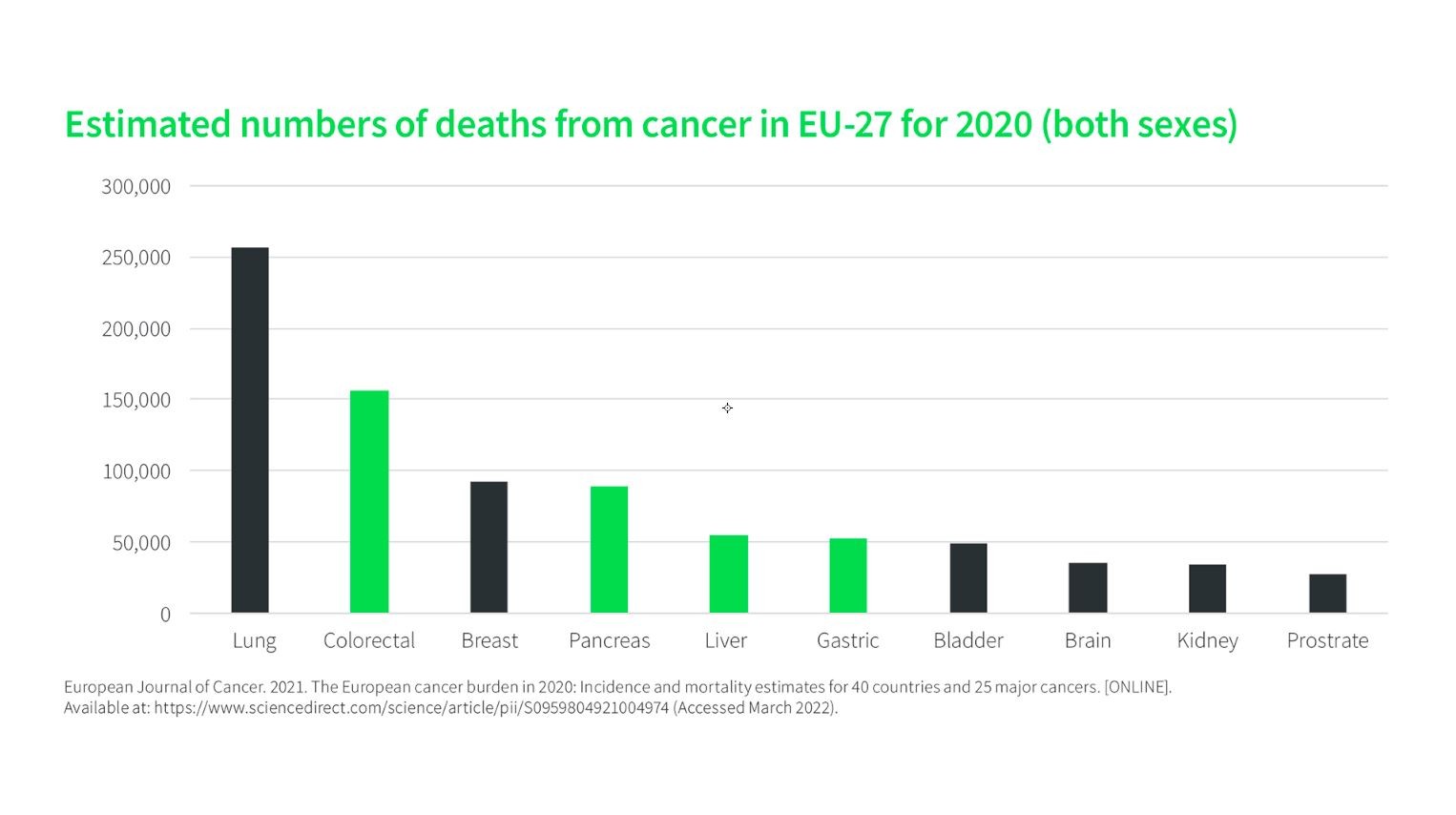
Digestive cancers affect both men and women and are the leading cause of cancer-related deaths in Europe. Colorectal cancer, the most common type of digestive cancer, is the third most diagnosed cancer in men across Europe, after prostate and lung cancer, and the second one in women after breast cancer.
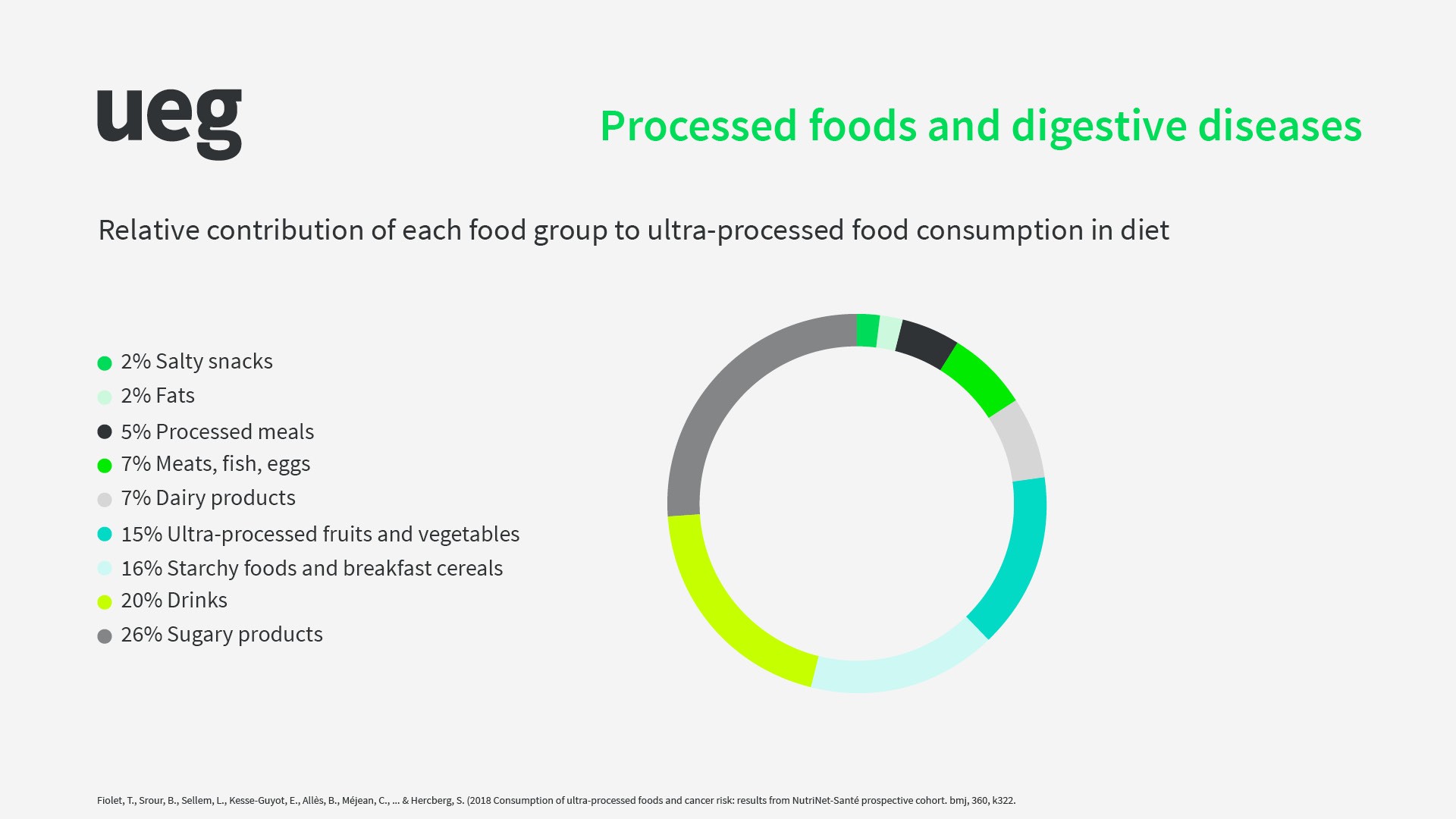
Strong evidence suggests that digestive cancers are at least partly preventable. Diet is one of the most important lifestyle factors in the development and prevention of cancer. In fact, studies have shown that the consumption of ultra-processed foods is associated with an increased risk of cancer.
Environmental factors related to diet, particularly processed foods, and medicine use, are primary determinants of microbiota composition. There is, for example, a correlation between certain microbiota compositions and colorectal cancer and studies show that microbiota also has a role in tumour development.
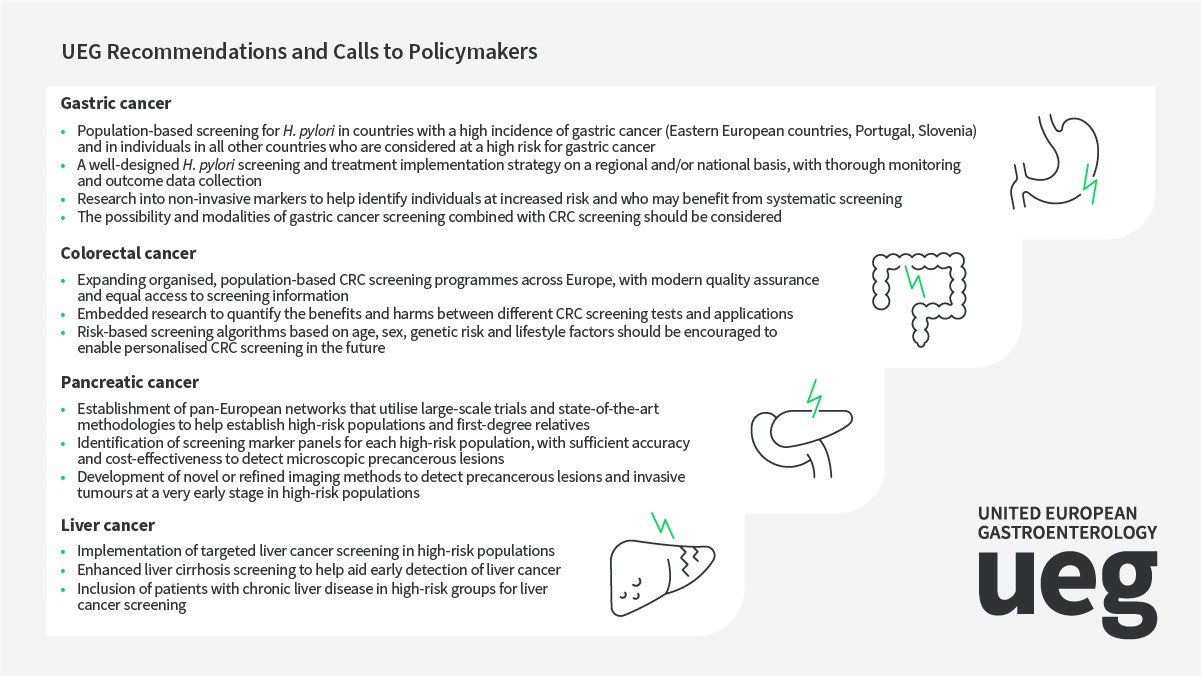
Cancer prevention and screening offer the best chance to help beat cancer and save lives. Read our recommendations to policymakers to ensure the successful implementation of screening for four main types of cancer across Europe.
Digestive Health Month 2021
In 2021, our Digestive Health Month campaign focused on the topic of obesity. See here some highlights:
The European Obesity Crisis
To underline the great public health-related challenges the obesity epidemic brings in Europe, Helena Cortez-Pinto, UEG Vice President, discussed the alarming trend of obesity across Europe and its significant impact on a range of chronic digestive diseases. The article also features the remarks of Stella Kyriakides, European Commissioner for Health and Sarah Wiener, Member of the European Parliament on the topic.
The role of bariatric surgery in alleviating the impact of obesity on chronic digestive diseases
Moreover, UEG expert Daniel Hartmann addressed the role of bariatric surgery in alleviating the impact of obesity on chronic digestive diseases in a timely article which also features Markus Peck, former Chair of the UEG Public Affairs Committee, who emphasizes the need for optimal prevention, treatment and care solutions to tackle obesity and improve quality of life of European citizens.
Protecting our future: Obesity and paediatric digestive diseases
Childhood obesity poses a particularly worrying threat to Europe. Weight problems during childhood are related to a wide range of digestive diseases that continue to develop throughout an individual’s lifespan.
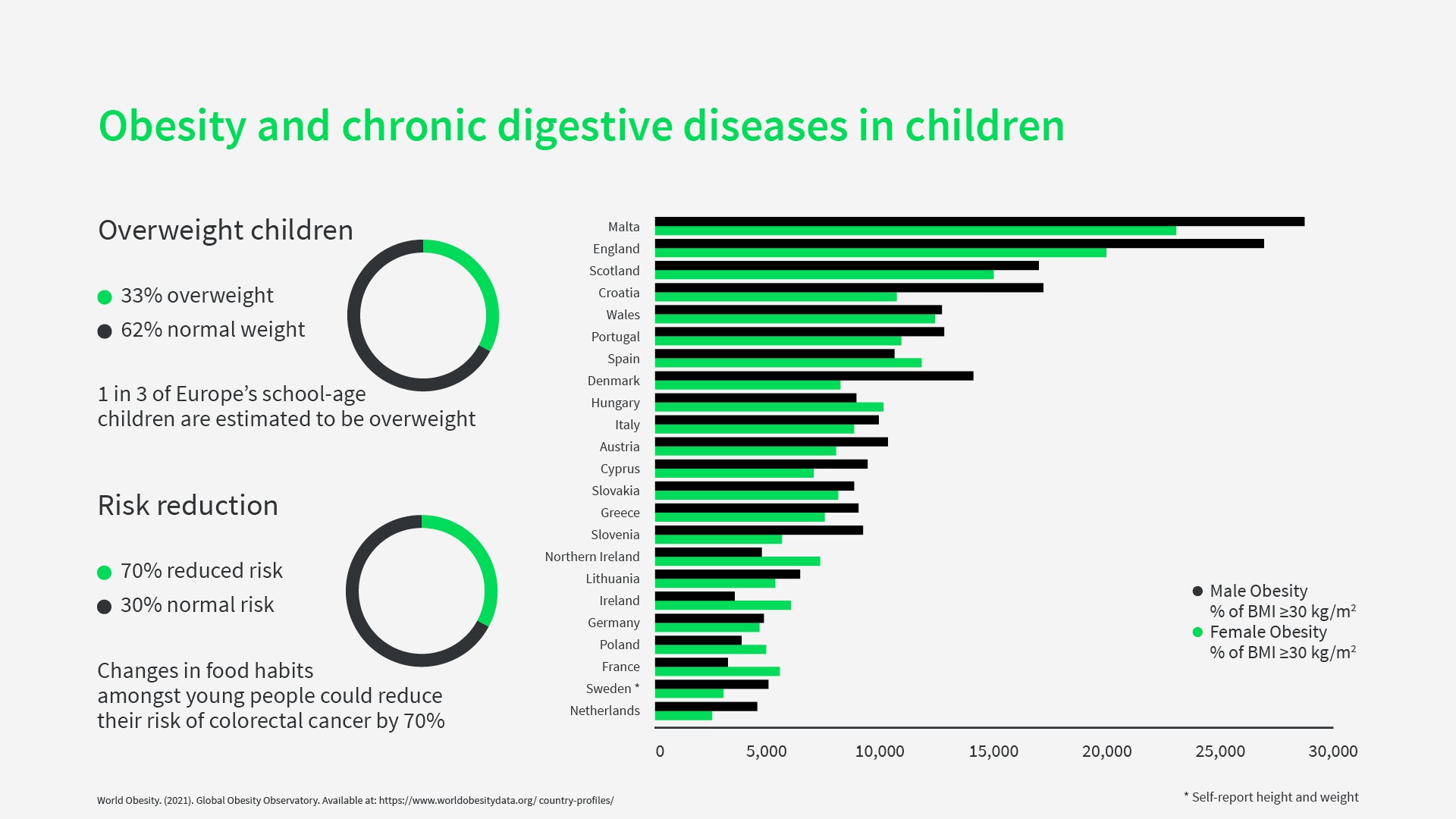
Recognising the causes of childhood obesity represents the first step in tackling the issue. Addressing ingrained family habits, such as portion sizes and sugared beverages that are consumed, can help to reduce the risk of childhood obesity. On a governmental level, the promotion of healthy foods and barriers to the aggressive marketing of fast-food and sugared beverages can potentially help stem the epidemic.
Taking action now: Diet and chronic digestive diseases
Healthy lifestyle choices act as the most effective preventative measure against obesity and subsequent digestive diseases. In particular, a healthy diet can significantly reduce the risk of obesity. UEG, and the digestive health experts within its community, recommend a healthy diet and lifestyle for the European population in order to reduce the risk and impact of chronic digestive diseases.
